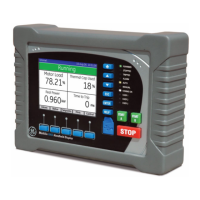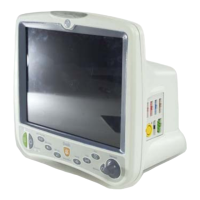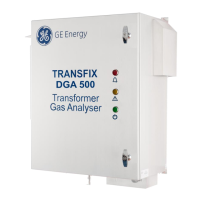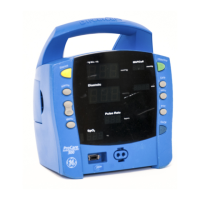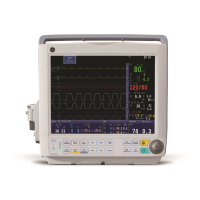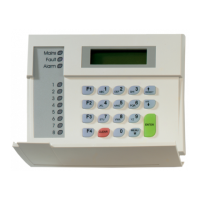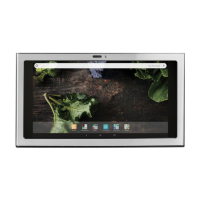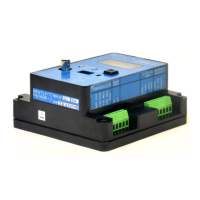Do you have a question about the GE Dinamap PRO Series and is the answer not in the manual?
This section contains maintenance procedures for the DINAMAP PRO Series 100-400 Monitor, including software screens and menus.
Describes the five fuses in the PRO Monitor power circuits, noting two are non-user serviceable mains fuses.
Details periodic maintenance tasks like cleaning, pressure calibration, and system checks for the PRO Monitor.
Provides instructions for cleaning the exterior of the PRO Monitor using a dampened cloth.
Outlines the self-tests performed by the PRO Monitor during power-up, including LED, LCD, and speaker checks.
Explains how to check the PRO Monitor's external DC supply and battery status indicators.
Offers guidance on proper battery care, including charging, storage, and replacement for optimal lifespan.
Recommends performing test procedures from Section 4.6 to verify parameter accuracy when in doubt.
Introduces the Clinician Mode, accessed via the 'More...' option, for routine PRO Monitor adjustments.
Details the steps to enter Clinician Mode from the Main menu using the rotor control and LCD.
Describes the options available in the Clinician Mode Main menu for routine PRO Monitor use.
Explains the options within the Clinician More... menu for changing PRO Monitor default settings.
Details the procedure to enter Service Mode from the Main menu using the rotor control and LCD.
Describes the options in the Service Mode Main menu for technicians to check functions, calibrate, and set language.
Outlines the options in the NIBP menu for calibrating and testing BP functions of the PRO Monitor.
Details the System menu options for modifying PRO Monitor configuration, testing EEPROM, and printing error logs.
Details SpO2 checks for PRO 300 & 400 models, including setup and verification steps.
Describes the procedure for performing a pneumatic system leak test using specific equipment and steps.
Explains how to verify the linearity and calibration of NIBP pressure transducers.
Outlines the procedure to check the neonatal overpressure point for the PRO Monitor.
Details the procedure for checking the adult overpressure point for the PRO Monitor.
Describes how to verify the proper functioning of the PRO Monitor's temperature system using an IVAC probe simulator.
Explains how to perform a printer test to generate a sample printout and ensure readability.
Provides step-by-step instructions for calibrating the NIBP transducer, emphasizing critical timing.
Describes how to adjust the overpressure thresholds for the PRO Monitor by modifying potentiometers on the main board.
Details the procedure for measuring ground leakage current under various polarities, with a limit of 500 µA.
Explains how to measure temperature system leakage current, with a limit of 150 µA.
Describes how to measure SpO2 system leakage current, with a limit of 150 µA.
Allows users to enable or disable the SpO2 parameter and select the specific technology (Nellcor or Masimo).
Enables users to turn the Temperature parameter and printer functions on or off.
Clears all errors from the error log, signalling the change with a tone.
Covers internal tests for leak rate, UUT pressure, and overpressure verification.
Details the procedure for verifying the SpO2 test parameters, including saturation and alarm sounds.
Covers tests for verifying Heart Rate readings and low rate alarms at specific BPM values.
Details the NIBP tests, including cuff inflation, systolic/diastolic readings, and heart rate.
Describes tests for measuring temperature at nominal values and checking for broken probe faults.
Verifies appropriate responses to pushbuttons and checks volume levels.
Tests the printer output and the battery system's operational status.
Checks remote alarm functionality and verifies pump/temp status during communications.
Covers critical Hipot tests for AC Main, Temperature, and SpO2 systems, plus safety tests.
| Model | Dinamap PRO Series |
|---|---|
| NIBP Technology | Oscillometric |
| Display Type | LCD |
| Parameter Measurement | NIBP, SpO2, Pulse Rate |
| Power Source | AC Power, Battery |
| Battery Type | Rechargeable |
| Connectivity | Serial |
| Data Storage | Internal memory |
